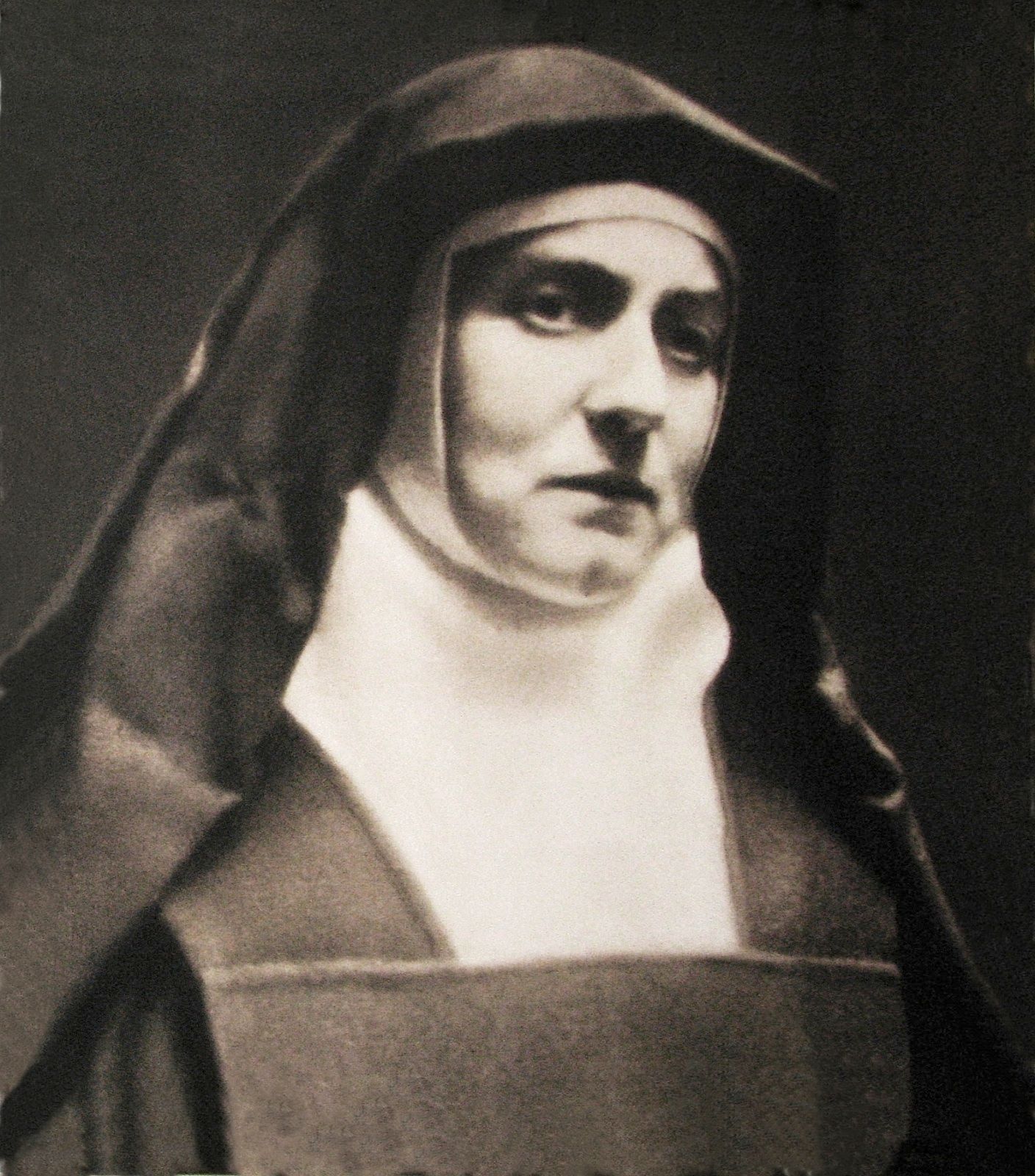Message of Abbot Paul - Wednesday 9th August 2023
Abbot Paul • August 8, 2023

Message from Fr Paul for Wednesday, 9th August 2023
How quickly the days pass. We’re practically a third of the way through August. It feels like Autumn. The days are getting shorter, the nights colder, although I’m assured that we’re due for another mini-heatwave sometime soon. Here and there, while walking with Toby, I have noticed a large crops of juicy blackberries, almost ready to harvest. I love them gently stewed with just the smallest amount of sugar. They have a pungent richness of flavour that no other fruit can compete with.
Today we celebrate the feast of St Teresa Benedicta of the Cross (Edith Stein), the Jewish philosopher who became a Catholic and then an enclosed Carmelite nun. Her writings are truly wonderful and are beautifully translated into English. Tragically, she was arrested by the Gestapo on 2nd August 1942 and killed at Auschwitz just a week later. Her suffering was mercifully short. She and her sister Rosa had been sent for safety to Holland, but the Dutch bishops published a pastoral letter condemning the Nazis for their treatment and murder of Jews who had become Catholic, as a result of which all Catholic Jews were rounded up and sent to concentration camps for extermination. Edith was brought up in a strict Jewish family, but became an agnostic in her teens. On reading the writings of St Teresa of Avila, the great Carmelite reformer, she became attracted to the Catholic faith and was received into the Church on 1st January 1922. She is one of the six patron saints of Europe. May she pray for us all today and especially for the victims of ethnic cleansing and persecution. We also ask her prayers for a just end to the war in Ukraine.
The Gospel reading for the feast comes from Matthew, (Mt 25: 1-13), and is the well-known Parable of the Ten Bridesmaids or Virgins, five foolish and five wise. Let’s read what Jesus said. “The kingdom of heaven will be like this: Ten bridesmaids took their lamps and went to meet the bridegroom. Five of them were foolish and five were sensible: the foolish ones did take their lamps, but they brought no oil, whereas the sensible ones took flasks of oil as well as their lamps. The bridegroom was late, and they all grew drowsy and fell asleep. But at midnight there was a cry, “The bridegroom is here! Go out and meet him.” At this, all those bridesmaids woke up and trimmed their lamps, and the foolish ones said to the sensible ones, “Give us some of your oil: our lamps are going out.” But they replied, “There may not be enough for us and for you; you had better go to those who sell it and buy some for yourselves.” They had gone off to buy it when the bridegroom arrived. Those who were ready went in with him to the wedding hall and the door was closed. The other bridesmaids arrived later. “Lord, Lord,” they said “open the door for us.” But he replied, “I tell you solemnly, I do not know you.” So, stay awake, because you do not know either the day or the hour.” It’s one of the Parables of the Kingdom: what will the kingdom of heaven be like? It will be like this, and it’s about being ready, being prepared. Those who are prepared will enter, while those who are not, will not. It’s a warning to us all. Salvation might be God’s gift to us in Christ, the Divine Bridegroom, but it’s not a gift to be squandered on the lazy, forgetful and indifferent, on those who make no effort themselves. The Lord doesn’t ask much of us, he’s not a harsh taskmaster, but there are certain minimal requirements. He’s not asking us to earn or merit the kingdom, but at least to work together with Christ and to cooperate with the gift of grace to prepare ourselves for the kingdom.
This parable contains the most heart-breaking words in the Bible. When the bridesmaids, who arrive late for the wedding feast, knock at the door and ask to be let in, crying, “Lord, Lord, open the door to us,“ the Lord replies, “I tell you solemnly, I do not know you.” What will the Lord say to us when we knock, he who knows us through and through, far better than we know ourselves? Will he say, “I do not know you”? Jesus tells us what to do: simply, to be prepared. And how do we prepare? By doing our best to live a good life, allowing Jesus to guide us and the Holy Spirit to inspire us, keeping our eyes focussed on what really matters, God’s love for us in Christ, and our love for God and our neighbour. Lord, when the hour comes, may we be prepared. Amen.












